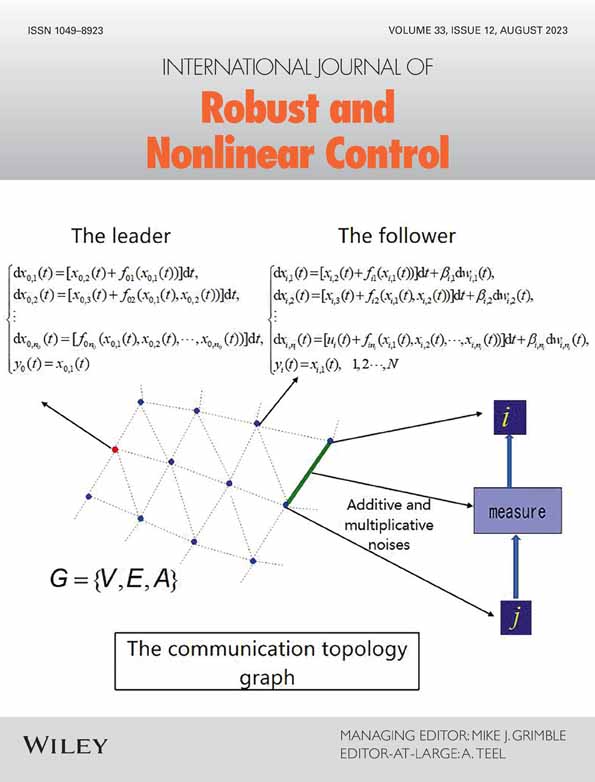Finite-time sub-optimal control design for control affine nonlinear systems
Abstract
A finite-time suboptimal control strategy named technique is proposed for the control of a class of control-affine nonlinear dynamic systems in this study. The nonlinear dynamic is expressed as a pseudo-linear form without linearization. By adding vanishing perturbation terms into the quadratic cost functional and using a power series to represent the co-state, an approximate solution to the Hamilton–Jacobi–Bellman (HJB) equation can be obtained through solving a differential Riccati equation offline and a series of linear Lyapunov equations with analytical solutions. The obtained suboptimal controller is in a state feedback closed-form. By tuning the parameters in the perturbation terms, semi-global stability can be guaranteed. In contrast to the finite-time state-dependent Riccati equation technique, the proposed method does not need intensive and iterative numerical computations, which facilitates real-time implementation. Two examples are utilized to demonstrate the effectiveness and efficiency of this proposed technique.
CONFLICT OF INTEREST STATEMENT
The authors declare no potential conflict of interests.
Open Research
DATA AVAILABILITY STATEMENT
The data that support the findings of this study are available from the corresponding author upon reasonable request.




